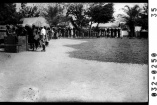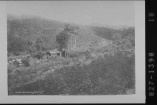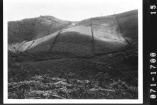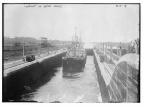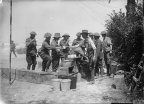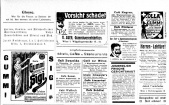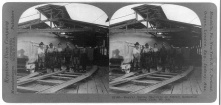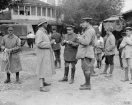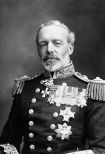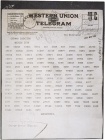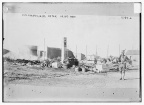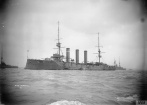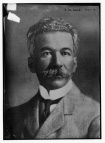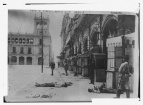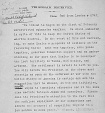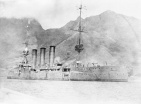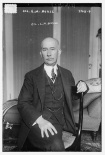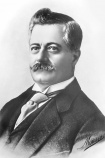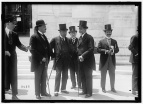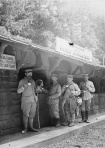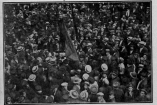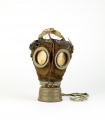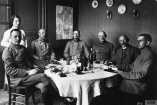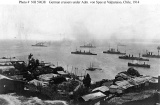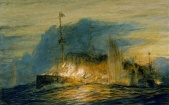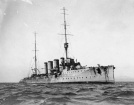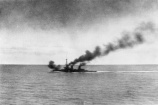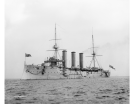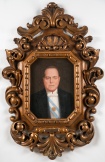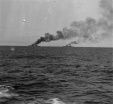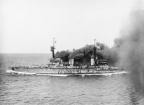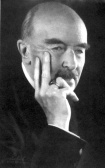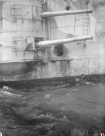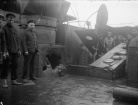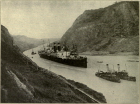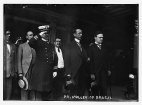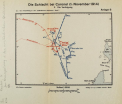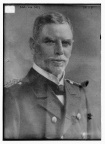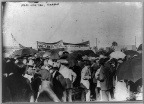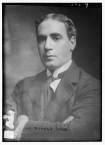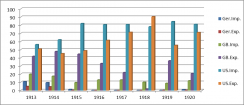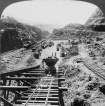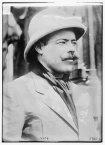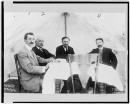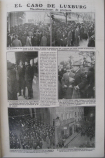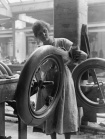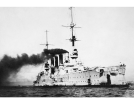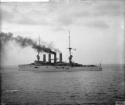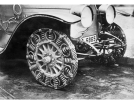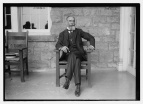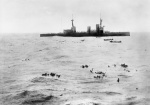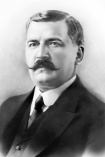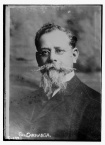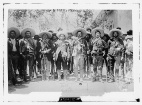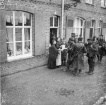Regions Latin America
Survey Articles (Regional)
Regional Thematic Articles
- German versus US Intelligence in Latin America
- Historiography 1918-Today (Latin America)
- Labour Movements, Trade Unions and Strikes (Latin America)
- Making Sense of the War (Latin America)
- Post-war Economies (Latin America)
- Press (Latin America)
- Propaganda War (Latin America)
- Social Movements (Latin America)
Encyclopedic Entries
- ABC Pact (Alliance between Argentina, Brazil and Chile)
- Anarchism (Latin America)
- Brás, Venceslau
- Brazil
- Brazilian Naval Division for War Operations (DNOG)
- Coffee
- Coronel, Battle of
- Falklands, Battle of the
- Frontin, Pedro Max Fernando
- German Immigrants (Brazil)
- Luxburg Affair
- Mexican Revolution
- Müller, Lauro
- Nicaragua
- Nitrate
- Panama and Panama Canal
- Pan Americanism
- Pessoa, Epitácio
- Rodó, José Enrique
- Rubber
- Tinoco Granados, Federico
- U.S. Intervention in the Caribbean
- Yrigoyen, Hipólito
- Zimmermann Telegram
Survey Articles (Regional)
-
When the First World War broke out in Europe, Latin Americans of all social strata soon felt that the conflict would plunge the world into a crisis of hitherto unknown dimensions. Due to its globally … READ MORE
Regional
Regional Thematic Articles
-
Latin America figured prominently in Germany’s global war strategy, though after 1915, intelligence operations primarily focused on disrupting Allied supply lines and agitating for war between the … READ MORE
Regional Thematic -
Scholarship on Latin American history has for decades largely ignored the First World War as a major event in which the continent played a part. This was mainly due to historiography’s focus on the … READ MORE
Regional Thematic -
Latin America experienced massive social unrest during the war years. The disastrous effects of the global economic war meant severe hardship for workers and their families, mainly in urban areas, … READ MORE
Regional Thematic -
The First World War significantly impacted Latin American intellectuals’ view on the subcontinent’s role in the world. The Great War and its repercussions divided society, reinforcing and shaping … READ MORE
Regional Thematic -
Latin American countries continued to pursue export-led growth after the First World War. However, the external environment was by then much less favourable. Export growth was therefore modest. … READ MORE
Regional Thematic -
Latin America experienced the Great War, which consumed Europe between 1914 and 1918, through the press. From the beginning, leading newspapers waged intense, constant, and diverse propaganda … READ MORE
Regional Thematic -
Latin America was a major battlefield for worldwide propaganda because the continent boasted a major number of neutral countries. While the Allies tried to lure them into the war on their side, the … READ MORE
Regional Thematic -
The workers were the primary instigators of social strife in Latin America during the war and incidentally suffered most from the effects of the conflagration. Yet social movements also developed … READ MORE
Regional Thematic
Encyclopedic Entries
-
On 25 May 1915, Argentina’s, Brazil’s and Chile’s ministers of foreign affairs signed a treaty to facilitate the peaceful solution of international controversies in Buenos Aires. Mired in … READ MORE
Entry -
The diffusion of anarchism in Latin America, which began in the 1870s, was boosted by large migration flows. Between 1890 and 1920, anarchism was an essential element in the process of workers’ … READ MORE
Entry -
Venceslau Brás was president of Brazil between 1914 and 1918. On 26 October 1917, he signed the Brazilian declaration of war against … READ MORE
Entry -
Brazil was the only South American country that participated actively in the First World War. Before the war, the country was economically dependent on European and North American markets and … READ MORE
Entry -
Created some months after Brazil's declaration of war against Germany, the Naval Division for War Operations (''Divisão Naval em Operações de Guerra'' – DNOG), active between May and November of … READ MORE
Entry -
Before World War I, coffee had become a popular drink in countries in the northern hemisphere, but when the war broke out, it was not regarded as an essential commodity. This article describes the … READ MORE
Entry -
On 1 November 1914, the German East Asiatic Cruiser Squadron defeated the 4th British Cruiser Squadron near the harbour of Coronel, … READ MORE
Entry -
During the Battle of the Falklands, the British naval force commanded by Admiral Sturdee defeated the German force under Admiral von Spee off the Falkland Islands on 8 December … READ MORE
Entry -
Pedro Frontin was a Brazilian navy admiral. He commanded the Brazilian Naval Division during military operations in World War I, acting in conjunction with British and U.S. naval forces along the … READ MORE
Entry -
German-speaking elites in Brazil were traditionally in contact with German colonial actors, and during World War I, many middle-class immigrants sympathized with Germany. This led to a conflict … READ MORE
Entry -
Named after the German ''chargé d’affaires'' in Buenos Aires, Count Karl von Luxburg, the Luxburg Affair was the diplomatic issue that brought Germany and Argentina to the brink of war in … READ MORE
Entry -
It was the complex and far-reaching transformation of the Mexican Revolution rather than the First World War that left its mark on Mexican history in the second decade of the 20th century. … READ MORE
Entry -
Lauro Müller was the Brazilian minister of foreign affairs between 1912 and 1917. A pro-German politician and intellectual, he was heavily criticised during World War I by the Brazilian press and … READ MORE
Entry -
Nicaragua’s experience during the First World War was influenced by the geopolitics of the Central American isthmus. The American occupation of Nicaragua between 1912 and 1925 impacted both … READ MORE
Entry -
Until 1914 natural nitrates were the most important source for the production of fertilizers and explosives. Beginning in 1883, the main nitrate reservoirs were controlled by Chile, which produced … READ MORE
Entry -
This article focuses on the construction of the Panama Canal as a prelude to World War I. Special attention is paid to U.S. interventions in Central America, the war’s impact on Panama itself and, … READ MORE
Entry -
The First World War elicited various responses from the Wilson administration based on Pan Americanism, a conception of regional integration under U.S. leadership that calls for more political … READ MORE
Entry -
Epitácio Pessoa served as the president of Brazil between 1919 and 1922. He led the Brazilian delegation to the Paris Peace Conference. He was also a member of the Permanent Court of International … READ MORE
Entry -
José Enrique Rodó was a Uruguayan writer. His main work ''Ariel'' was published in 1900. As a journalist, Rodó reflected his personal interpretation of the First World … READ MORE
Entry -
During World War I, motor vehicles took on a key role as transport facilities for troops and equipment. They needed tires made of rubber, which as a result became a raw material of strategic … READ MORE
Entry -
Federico Tinoco Granados was the Costa Rican president from 1917-1919 who declared war on Germany in April 1917. With his support for the United States during the last two years of the war, he tried … READ MORE
Entry -
Since the beginning of the 20th century, political conflicts determined relations between the German Empire and the USA. The Caribbean became one of the scenes of these conflicts during … READ MORE
Entry -
Hipólito Yrigoyen was president of Argentina during a critical moment of the First World War. He maintained neutrality despite internal and external pressures, and promoted Pan-Hispanism to … READ MORE
Entry -
Named for its author, the German minister of foreign affairs Arthur Zimmermann, the so-called Zimmermann Telegram threw a disturbing light on German wartime diplomacy in Mexico and it catalyzed the … READ MORE
Entry
See also
-
Alliances were an important feature of the international system on the eve of World War I. The formation of rival blocs of Great Powers has previously considered a major cause of the outbreak of war … READ MORE
Thematic -
This article examines the First World War’s ecological impact and shows that protracted environmental transformations resulted more from expanded industrial modes of production than heavy combat. … READ MORE
Thematic -
By examining the origins, pathways, demographic impact and consequences for the public, the medical profession and governments, of the so-called “Spanish” influenza pandemic of 1918-1919, this … READ MORE
Thematic -
The article examines international efforts to curb states’ war-making prerogatives in the second half of the “long” 19th century. It captures new humanitarian sentiments circulating … READ MORE
Thematic -
Post-war economies were beset with problems, ultimately leading to the Great Depression that ruined the world economy and resulted in “beggar-thy-neighbour” national policies. Roosevelt’s … READ MORE
Thematic -
Raw materials were vital during the First World War. Due to the armaments production, the belligerents’ needs increased significantly, while the available resources fell. Each country intended both … READ MORE
Thematic -
It may surprise us to learn that some sectors of the European public were in favour of the war in 1914. The impact of modern weapons was not well understood and many people in the government, … READ MORE
Thematic
Survey Articles (Regional)
-
When the First World War broke out in Europe, Latin Americans of all social strata soon felt that the conflict would plunge the world into a crisis of hitherto unknown dimensions. Due to its globally … READ MORE
Regional
Regional Thematic Articles
-
Latin America figured prominently in Germany’s global war strategy, though after 1915, intelligence operations primarily focused on disrupting Allied supply lines and agitating for war between the … READ MORE
Regional Thematic -
Scholarship on Latin American history has for decades largely ignored the First World War as a major event in which the continent played a part. This was mainly due to historiography’s focus on the … READ MORE
Regional Thematic -
Latin America experienced massive social unrest during the war years. The disastrous effects of the global economic war meant severe hardship for workers and their families, mainly in urban areas, … READ MORE
Regional Thematic -
The First World War significantly impacted Latin American intellectuals’ view on the subcontinent’s role in the world. The Great War and its repercussions divided society, reinforcing and shaping … READ MORE
Regional Thematic -
Latin American countries continued to pursue export-led growth after the First World War. However, the external environment was by then much less favourable. Export growth was therefore modest. … READ MORE
Regional Thematic -
Latin America experienced the Great War, which consumed Europe between 1914 and 1918, through the press. From the beginning, leading newspapers waged intense, constant, and diverse propaganda … READ MORE
Regional Thematic -
Latin America was a major battlefield for worldwide propaganda because the continent boasted a major number of neutral countries. While the Allies tried to lure them into the war on their side, the … READ MORE
Regional Thematic -
The workers were the primary instigators of social strife in Latin America during the war and incidentally suffered most from the effects of the conflagration. Yet social movements also developed … READ MORE
Regional Thematic
Encyclopedic Entries
-
On 25 May 1915, Argentina’s, Brazil’s and Chile’s ministers of foreign affairs signed a treaty to facilitate the peaceful solution of international controversies in Buenos Aires. Mired in … READ MORE
Entry -
The diffusion of anarchism in Latin America, which began in the 1870s, was boosted by large migration flows. Between 1890 and 1920, anarchism was an essential element in the process of workers’ … READ MORE
Entry -
Venceslau Brás was president of Brazil between 1914 and 1918. On 26 October 1917, he signed the Brazilian declaration of war against … READ MORE
Entry -
Brazil was the only South American country that participated actively in the First World War. Before the war, the country was economically dependent on European and North American markets and … READ MORE
Entry -
Created some months after Brazil's declaration of war against Germany, the Naval Division for War Operations (''Divisão Naval em Operações de Guerra'' – DNOG), active between May and November of … READ MORE
Entry -
Before World War I, coffee had become a popular drink in countries in the northern hemisphere, but when the war broke out, it was not regarded as an essential commodity. This article describes the … READ MORE
Entry -
On 1 November 1914, the German East Asiatic Cruiser Squadron defeated the 4th British Cruiser Squadron near the harbour of Coronel, … READ MORE
Entry -
During the Battle of the Falklands, the British naval force commanded by Admiral Sturdee defeated the German force under Admiral von Spee off the Falkland Islands on 8 December … READ MORE
Entry -
Pedro Frontin was a Brazilian navy admiral. He commanded the Brazilian Naval Division during military operations in World War I, acting in conjunction with British and U.S. naval forces along the … READ MORE
Entry -
German-speaking elites in Brazil were traditionally in contact with German colonial actors, and during World War I, many middle-class immigrants sympathized with Germany. This led to a conflict … READ MORE
Entry -
Named after the German ''chargé d’affaires'' in Buenos Aires, Count Karl von Luxburg, the Luxburg Affair was the diplomatic issue that brought Germany and Argentina to the brink of war in … READ MORE
Entry -
It was the complex and far-reaching transformation of the Mexican Revolution rather than the First World War that left its mark on Mexican history in the second decade of the 20th century. … READ MORE
Entry -
Lauro Müller was the Brazilian minister of foreign affairs between 1912 and 1917. A pro-German politician and intellectual, he was heavily criticised during World War I by the Brazilian press and … READ MORE
Entry -
Nicaragua’s experience during the First World War was influenced by the geopolitics of the Central American isthmus. The American occupation of Nicaragua between 1912 and 1925 impacted both … READ MORE
Entry -
Until 1914 natural nitrates were the most important source for the production of fertilizers and explosives. Beginning in 1883, the main nitrate reservoirs were controlled by Chile, which produced … READ MORE
Entry -
This article focuses on the construction of the Panama Canal as a prelude to World War I. Special attention is paid to U.S. interventions in Central America, the war’s impact on Panama itself and, … READ MORE
Entry -
The First World War elicited various responses from the Wilson administration based on Pan Americanism, a conception of regional integration under U.S. leadership that calls for more political … READ MORE
Entry -
Epitácio Pessoa served as the president of Brazil between 1919 and 1922. He led the Brazilian delegation to the Paris Peace Conference. He was also a member of the Permanent Court of International … READ MORE
Entry -
José Enrique Rodó was a Uruguayan writer. His main work ''Ariel'' was published in 1900. As a journalist, Rodó reflected his personal interpretation of the First World … READ MORE
Entry -
During World War I, motor vehicles took on a key role as transport facilities for troops and equipment. They needed tires made of rubber, which as a result became a raw material of strategic … READ MORE
Entry -
Federico Tinoco Granados was the Costa Rican president from 1917-1919 who declared war on Germany in April 1917. With his support for the United States during the last two years of the war, he tried … READ MORE
Entry -
Since the beginning of the 20th century, political conflicts determined relations between the German Empire and the USA. The Caribbean became one of the scenes of these conflicts during … READ MORE
Entry -
Hipólito Yrigoyen was president of Argentina during a critical moment of the First World War. He maintained neutrality despite internal and external pressures, and promoted Pan-Hispanism to … READ MORE
Entry -
Named for its author, the German minister of foreign affairs Arthur Zimmermann, the so-called Zimmermann Telegram threw a disturbing light on German wartime diplomacy in Mexico and it catalyzed the … READ MORE
Entry






























